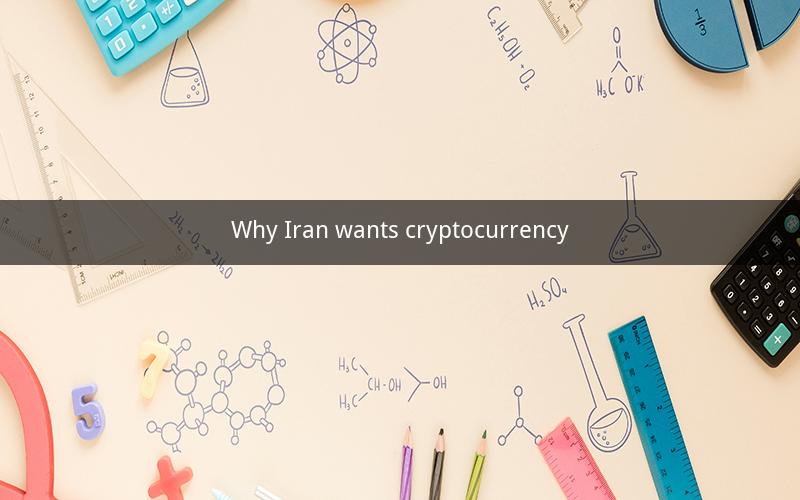
Why Iran Wants Cryptocurrency
Table of Contents
1. The Economic Context of Iran
2. Sanctions and Cryptocurrency
3. The Role of Cryptocurrency in Financial Inclusion
4. Iran's Legal Framework for Cryptocurrency
5. The Potential for Innovation and Growth
6. The Challenges and Risks
7. Conclusion
1. The Economic Context of Iran
Iran has faced significant economic challenges in recent years, primarily due to international sanctions imposed by Western countries. These sanctions have restricted Iran's access to global financial markets, making it difficult for the country to engage in international trade and investment. As a result, the Iranian economy has experienced inflation, currency devaluation, and a shrinking GDP.
2. Sanctions and Cryptocurrency
In response to these sanctions, Iran has shown increasing interest in cryptocurrencies. Cryptocurrencies offer a decentralized and often borderless financial system that can bypass traditional banking channels and sanctions. By using digital currencies like Bitcoin, Iran can conduct transactions with minimal oversight, potentially circumventing the restrictions imposed by the sanctions.
3. The Role of Cryptocurrency in Financial Inclusion
Cryptocurrency also has the potential to improve financial inclusion in Iran. Many Iranians do not have access to traditional banking services due to various reasons, including poverty and government policies. Cryptocurrencies can provide a means for these individuals to participate in the global economy, send and receive remittances, and store value.
4. Iran's Legal Framework for Cryptocurrency
The Iranian government has taken steps to regulate the cryptocurrency market. In 2019, the Central Bank of Iran (CBI) announced a regulatory framework for cryptocurrency exchanges, aiming to prevent money laundering and terrorist financing. However, the legal status of cryptocurrencies as a means of payment remains unclear, and the government has not yet fully embraced the technology.
5. The Potential for Innovation and Growth
The adoption of cryptocurrency in Iran could lead to innovation and growth in various sectors. For instance, the tech industry could benefit from the development of blockchain applications and services. Additionally, the use of cryptocurrencies could attract foreign investment, as it may be seen as a way to bypass sanctions and engage with the Iranian market.
6. The Challenges and Risks
Despite the potential benefits, there are significant challenges and risks associated with the adoption of cryptocurrency in Iran. One of the main concerns is the security of digital assets. Cryptocurrency exchanges have been targeted by hackers in the past, and there is a risk that Iran's financial infrastructure could be compromised. Moreover, the volatility of cryptocurrencies can pose a risk to the Iranian economy, especially considering the country's already fragile economic situation.
7. Conclusion
The desire of Iran to embrace cryptocurrency is driven by a combination of economic necessity and the potential for innovation. While the government has taken steps to regulate the market, the legal and regulatory environment remains uncertain. As Iran continues to navigate the complexities of its economy and international relations, the role of cryptocurrency is likely to evolve, presenting both opportunities and challenges.
---
Questions and Answers
1. Q: How have international sanctions impacted the Iranian economy?
A: International sanctions have restricted Iran's access to global financial markets, leading to inflation, currency devaluation, and a shrinking GDP.
2. Q: What is the main advantage of using cryptocurrency for Iran?
A: Cryptocurrency offers a decentralized and often borderless financial system, allowing Iran to conduct transactions with minimal oversight and potentially circumvent sanctions.
3. Q: How can cryptocurrency improve financial inclusion in Iran?
A: Cryptocurrency can provide a means for unbanked individuals to participate in the global economy, send and receive remittances, and store value.
4. Q: What is the current legal status of cryptocurrencies in Iran?
A: The legal status of cryptocurrencies in Iran is unclear, with the government having announced a regulatory framework for exchanges but not yet fully embracing the technology.
5. Q: What potential risks are associated with the adoption of cryptocurrency in Iran?
A: The main risks include the security of digital assets and the volatility of cryptocurrencies, which can pose a risk to the Iranian economy.
6. Q: How could the adoption of cryptocurrency lead to innovation and growth in Iran?
A: The tech industry could benefit from the development of blockchain applications, and the use of cryptocurrencies could attract foreign investment.
7. Q: Why has the Iranian government been cautious about fully embracing cryptocurrency?
A: The government is cautious due to concerns over security, volatility, and the potential for misuse of cryptocurrencies.
8. Q: What role could cryptocurrencies play in Iran's international trade?
A: Cryptocurrencies could facilitate international trade by allowing Iran to conduct transactions with minimal oversight and potentially circumvent sanctions.
9. Q: How might the use of cryptocurrency affect the value of the Iranian rial?
A: The use of cryptocurrency could potentially stabilize the value of the Iranian rial by providing an alternative means of exchange.
10. Q: In what ways could Iran's experience with cryptocurrency influence other countries facing similar economic challenges?
A: Iran's experience could provide insights into the potential benefits and risks of adopting cryptocurrency, potentially influencing other countries facing economic sanctions.